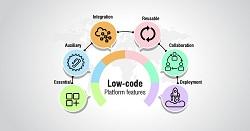6 Reasons Why Cloud Service Is the Future of 2023
Cloud computing is no longer a buzzword. It’s an industry which is rapidly growing into billions. Cloud computing operates on a similar principle, such as web-based email clients. This enables users to access all of the features and files of the system. There are multiple cloud-based applications like Gmail, Google Drive, TurboTax, Facebook, and Instagram.
Scalability:
One of the crucial benefits of cloud service is its inherent scalability. Scaling an environment on-demand simply wasn’t possible in past organizations and was restricted to size and processing power. The cloud has truly revolutionized how businesses use technology resources. It helps in scalability by offering on-demand access to computing resources. This allows businesses to scale up or down to offer storage, network, and processing power. Cloud scalability refers to cloud computing systems adapting to changing computing requirements. This scalability involves increasing or decreasing the number of servers, storage, and other computing resources. This type of scalability enables organizations to adjust to the changing needs of computing technology quickly. This technology aims to ensure that the cloud service can scale cost-effectively and that the service can handle greater loads by adding physical or virtual resources.
Innovation:
Innovation is directly tied with the growth of an organization. By properly using legacy technologies can hinder the organizational ability to both experiment with new solutions. It actually deploys solutions at a scalable level. Cloud model allows organizations to move quickly when developing new business services and mobile applications. It empowers business teams and line-of-business managers with shared resources, self-service capabilities and elastic capability. Companies can reduce burden on their internal IT(information technology) teams by leveraging the public cloud deployment model. It is similar to services-based models such as platform as a service, infrastructure as a service or software as a service.
Cost-effectiveness:
Cost-effectiveness is one of the primary reasons cloud computing is crucial for businesses. Cloud migration can be an expensive approach so the right way to approach this issue is by looking at how much money you can save during migration. Calculating the actual cost of ownership for cloud solutions can be difficult due to the project/ solution requirements. Typically, the true value of cloud computing comes from added functionalities which are critical to cloud environments:
- Agility.
- Scalability.
- Optimized DevOps.
Improved DevOps:
The main benefit of DevOps is to increase the quality and pace of innovative solution deployments. This is achieved with a flexible communication process. This allows for traditionally isolated teams to work together.
Flexibility:
It is an oft-cited reason why cloud computing is crucial for business. Infrastructure is flexible to the very obvious cloud. However, flexibility refers to cloud computing’s future-proof model. This is a transformative time for companies of all sizes. Technology allows organizations to create new business models and efficiencies. Conversely, cloud computing is at the heart of transformation.
Multiple Service Offerings:
Typically, there are four main cloud deployment models: public, private, hybrid, and community. While opting for a cloud service provider, you should consider the advantages and disadvantages of cloud deployment models. The latest emerging technologies in the cloud computing industry are leading to establish a hybrid approach in organizations. Additionally, there are three main service providers mentioned below:
SaaS: It includes many industrial giants such as Dropbox, Google Apps, Slack, and Gmail. This refers to any software that can be used through Internet technologies.
PaaS: It consists of Google App Engine and IBM Cloud Foundry. PaaS enables organizations to develop custom technical solutions via the cloud. Organizations can use PaaS to develop web applications. It reduces the infrastructural requirements which are traditionally required during a development cycle.
Bottom Line:
Cloud services offer a range of benefits like advanced multiple offerings(PaaS or SaaS), cost-effectiveness, improvement in DevOps, etc. With so many benefits, what are you looking for? Opt for a CSP provider fast!



